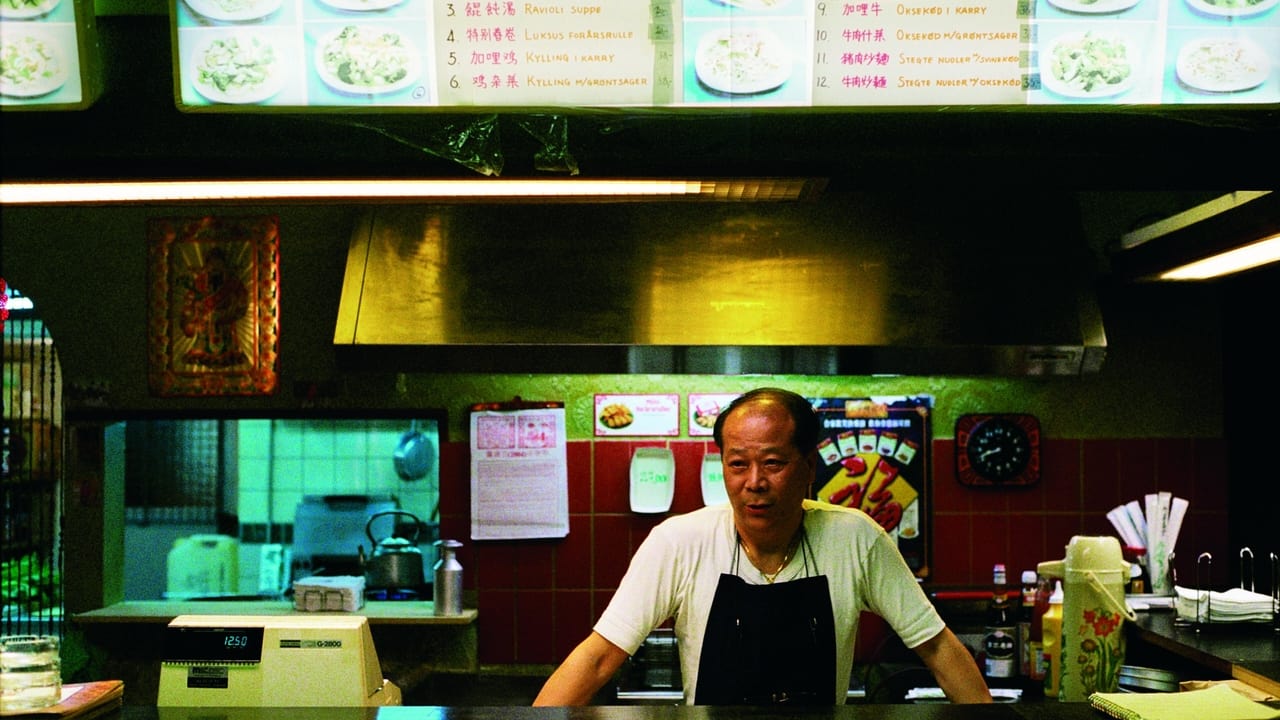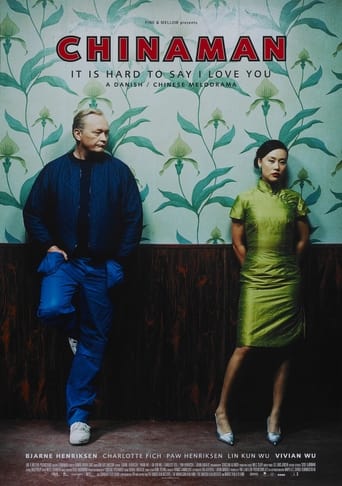

Let's be realistic.
... View MoreGood concept, poorly executed.
... View MoreThe plot isn't so bad, but the pace of storytelling is too slow which makes people bored. Certain moments are so obvious and unnecessary for the main plot. I would've fast-forwarded those moments if it was an online streaming. The ending looks like implying a sequel, not sure if this movie will get one
... View MoreIf you're interested in the topic at hand, you should just watch it and judge yourself because the reviews have gone very biased by people that didn't even watch it and just hate (or love) the creator. I liked it, it was well written, narrated, and directed and it was about a topic that interests me.
... View MoreIt's not often you see a Danish-Chinese movie production, and Kinamand is a gem. The acting is superb and the screen writing insightful. The ending was very heartbreaking, and I wish there was a different ending!Hopefully more Danish-Chinese co-productions can occur, perhaps a TV detective drama or something like that.
... View More"Chinaman" is a deceptive film. While it appears very simple and perhaps even a comedy on the surface, the film is much deeper, more sensitive and very engaging. I must warn you though, this is NOT a film everyone will like. It does not have a happy Hollywood style ending and the film is pretty unconventional. As for me, I liked that the film didn't try to fit a formula and didn't even mind the sad portions of the film. But I do recommend you have some Kleenex nearby--just in case.At the beginning of the film, Keld's wife tells him that she's leaving him for good. You have absolutely no idea why or what their marriage had been like--all you know is that she wants out as soon as possible. Not surprisingly, Keld is depressed and directionless--and Bjarne Henriksen makes this very apparent in his performance. Part of his depression and directionless is evident in his habits. He goes to the same Chinese restaurant every night and he sells off all his furniture. Sitting in an empty apartment, Keld is just drifting through life--waiting for his divorce to be final.One evening when he's at the Chinese restaurant, the place's plumbing goes crazy and Keld jumps into action. After all, he is a plumber. And through the course of this, Keld and the owner of the restaurant become friends--so much so that his new friend makes him a VERY unusual proposition. He wants Keld to marry his sister, Ling, in order to allow her to remain in the country. Naturally, it will be a marriage in name only. She'll move in with Keld but their relationship will be business. However, rather expectedly, a closeness develops between them and after a while, Keld realizes he's falling in love with his new wife. Now the rest of the film is NOT what you'd expect--it is a very unusual film to say the least. But, Henriksen's excellent performance and the film's nice direction and script really hooked me. A very unusual and bittersweet film--and one that left me very impressed.
... View MoreIt wasn't the best film we've ever seen (Under the Sun takes that prize, but certainly one of the best we've seen recently. Calmly and patiently paced, a few minor twists here and there - well and subtly acted, and beautifully filmed, this was one of those Netflix recommendations that really paid off. All of the characters were wonderful and the camera was very kind to them all. The movie just exudes humanity. After the wretched experience of Happy Go Lucky (could there be a more annoying recent film), this one was like a balm for the senses. And at a bit under 90 minutes, a perfect length for the story. Highly recommended.
... View MoreI saw the film today, and seldom have I been so touched by a movie. Not only I, but most of the cinema was going through the emotions of laughing and crying, as we were following the story of Keld and Ling. Being a Dane married to a Chinese woman myself, I could strongly relate to how the oriental mystique and beauty was affecting Keld's life so much. I have always been a great fan of Vivian Wu, and I think that her performance in this movie was great, even though it is a smaller part than for instance my all-time favorite "Pillow Book". Bjarne Henriksen who carries most of the film, gives a great performance, demonstrating what a truly great actor he is. One of my favorite moments in the film is a pan over the area where the main events take place. To me it displayed how fragile life is. It also matches beautifully with a similar pan later in the movie that I will not reveal. I personally think that Henrik Ruben Genz has created a masterpiece.
... View More